Brazil's Role in Global Decision-Making and the Economy
Ambassador Mauro Vieira of Brazil
Photos | Transcript
 Washington, DC—On November 29, 2011, WFPG members and guests gathered at the residence of Ambassador Mauro Vieira of Brazil for a discussion on Brazils Role in Global Decision-Making and the Economy, moderated by former Under Secretary of State for Democracy and Global Affairs, Paula Dobriansky. Ambassador Vieira gave an overview of the role that Brazil was playing globally, and the countrys current economic and foreign policy. Washington, DC—On November 29, 2011, WFPG members and guests gathered at the residence of Ambassador Mauro Vieira of Brazil for a discussion on Brazils Role in Global Decision-Making and the Economy, moderated by former Under Secretary of State for Democracy and Global Affairs, Paula Dobriansky. Ambassador Vieira gave an overview of the role that Brazil was playing globally, and the countrys current economic and foreign policy.
In his remarks, Ambassador Vieira discussed Brazils remarkable growth in a historical context, citing the return to a democratic government and the macro-economic stability as two major reasons for Brazils success. He attributes Brazils economic growth to the introduction of the new Real in 1994, a favorable environment for investment, a free market, and a more active role played by the state. Ambassador Vieira highlighted historic achievements in Brazils social programs, including, the creation of the Bolsa Familia under President Lula, which provided financial support for 12 million families and lifted 28 million Brazilians out of poverty. Additionally, Ambassador Vieira spoke of Brazils increase in foreign relations. For example, under Lulas presidency Brazil opened 50 new embassies. Brazil was also the leader in relief efforts following Haitian earthquake.
The Ambassador addressed the relationship between Brazil and the US. He noted that the countries have a long and important alliance. The United States was Brazils number one trading partner for a century and was only recently surpassed by China. Although President Rouseff and President Obama meet regularly, Ambassador Vieira explained that Brazil and the US have differences on some issues, noting that, this only proves that we are good partners because a good partner is one thats free to say yes and say no when its the case. Otherwise it would be a monotonous to have the same opinion always.
The main focus of the evening was Brazils role in the global economy. Ambassador Vieira pointed out the shift from 20th century bipolarity to the incorporation of developing countries, like the BRICS (Brazil, Russia, India, China, and South Africa) in foreign policy. The 2008 financial crisis amplified this change. Ambassador Vieira explained that the financial crisis started in developed countries. Brazil was one of the last effected and may be the first to recover. This global economic crisis further signaled the necessity to reform global governance. Ambassador Vieira explained that the creation of the G20 leveled the playing field between wealthy and developing countries and Brazils participation in the G20 has enhanced its influence. Brazil is also working hard to reform the UN Security Council so that it reflects the current world and not the world as it existed after World War II.
In terms of the International Monetary Fund, the Ambassador explained that Brazil was once a debtor nation and now is a creditor. For this reason, they were asked by the IMF to assist Europe with the Euro crisis. He indicated that Brazil would be glad to work with the IMF to find a solution, but only within the IMFs framework.
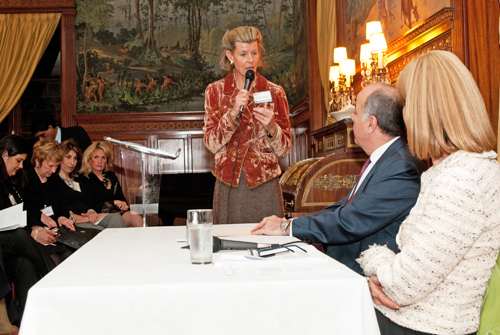 |
 |
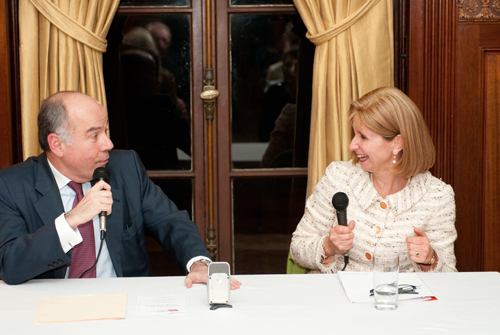 |
WFPG Board Member Diana Villiers Negroponte
opens the program
|
|
Ambassador Mauro Vieira and Ambassador
Paula Dobriansky, WFPG Board
|
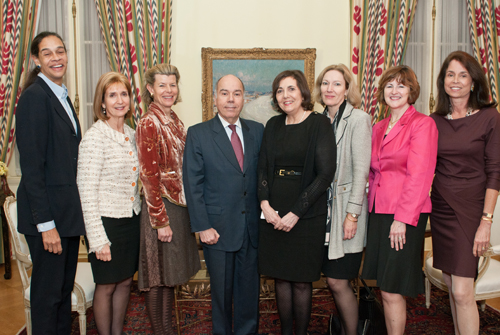 |
 |
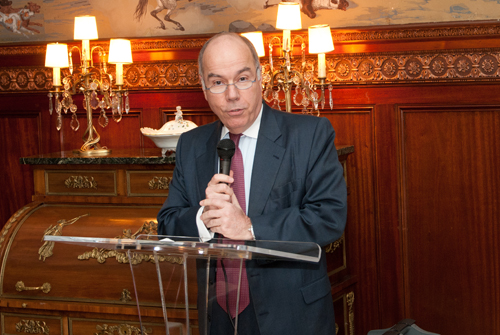 |
Ambassador Vieira with WFPG Board Members
Gail Kitch, Paula Dobriansky, Diana Negroponte,
Carolyn Brehm, Theresa Loar,
Isabel Jasinowski and Patricia Ellis
|
|
Ambassador Vieira addresses guests
|
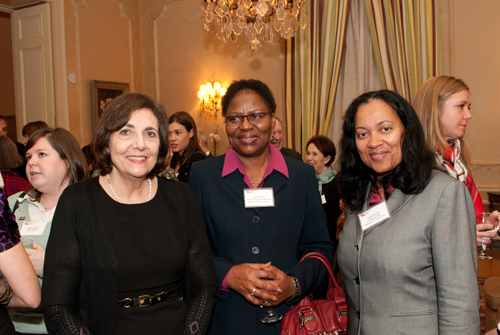 |
 |
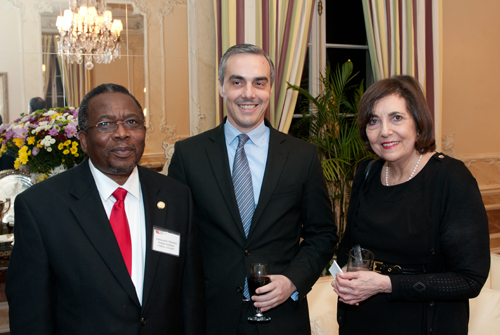 |
Ambassador Sumbana of Mozambique, Ambassador Veiga
of Cape Verde and Patricia Ellis
|
|
Ambassador Sebatane of Lesotho, Paulo Pacheco
of the Embassy of Brazil, and Patricia Ellis
|
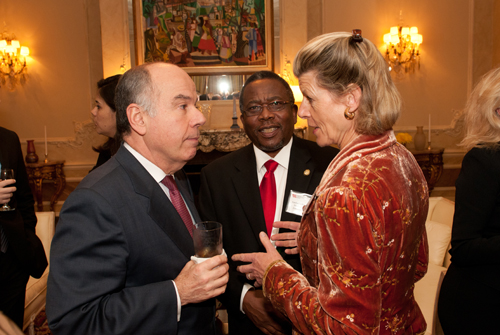 |
 |
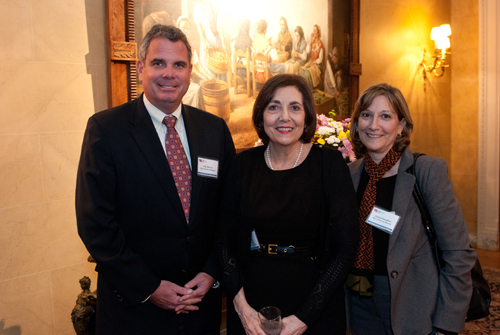 |
Ambassador Vieira with Ambassador Sebatane and
Diana Villiers Negroponte
|
|
WFPG Corporate Advisory Council Members
Tim Marvin and Joanne Hamilton of Host Hotels & Resorts
with Patricia Ellis
|
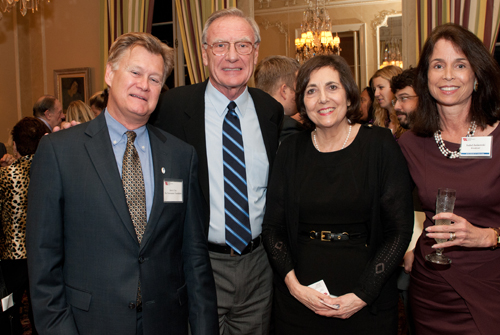 |
 |
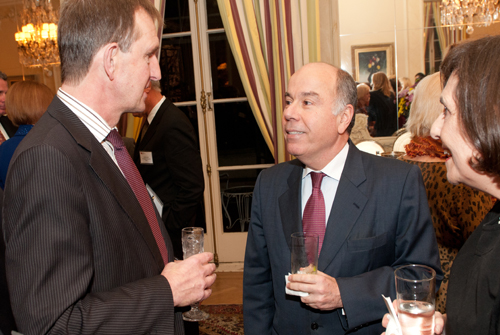 |
Jerry Cox, Jerry Jasinowski, Patricia Ellis
and Isabel Jasinowski
|
|
Ambassador Vieira and Ambassador
Stefansson of Iceland
|
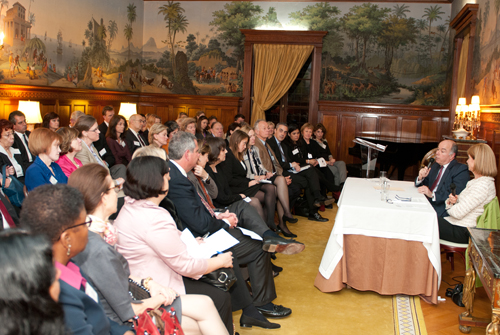 |
 |
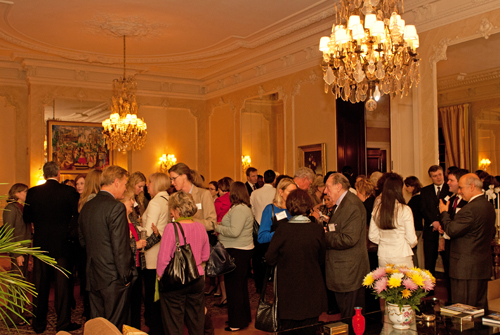 |
|
|